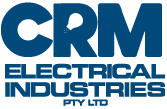FAQ
Check out our Frequently asked questions below
Check out our Frequently asked questions below
Yes, we sure do. We’re more than happy to discuss your project and provide you with an estimate with no strings attached.
The consequences of DIY work can be fatal. Not only that, it is illegal and can jeopardise your insurance. Electrical work in your home or commercial property should only be done by a licensed electrician.
When choosing an electrician or electrical contractor, there should be a license number on their website or advertisement. You can check a license number in QLD here https://fswqap.worksafe.qld.gov.au/elis/ and NSW here https://www.onegov.nsw.gov.au/publicregister/#/publicregister/search/Trades
If you can’t confirm their license details, don’t hire them.
No. It’s illegal for anyone other than a licensed electrician to do electrical work, or carry out electrical repairs. If you do your own electrical repairs it can affect your property insurance cover and you risk being fined and prosecuted.
Replacing a light switch, installing a power point, repairing an appliance or installing fans are all examples of electrical work. While you can purchase these items yourself (switches, fans, etc) an electrician must do the installation.
A safety switch is a type of circuit breaker designed to protect us from electric shock. If a safety switch detects the electrical current is leaking somewhere, it turns the power off almost instantly to avoid electric shock or injury to a person.
People often confuse safety switches with circuit breakers and fuses. They serve different purposes and are both essential components to ensure your home or business remains hazard-free. Safety switches are designed to help protect people from electrical hazards by disconnecting the electricity, while circuit breakers and fuses protect your appliances by cutting power when there is a fault or overloading of the system. While they look alike, safety switches have a test button whereas circuit breakers do not.
Yes. Queensland electrical legislation states that all homes must have a safety switch installed.
The safety switch is located in your switchboard. They have a ‘Test’ or ‘T’ button on the front.
The safest approach is to have a safety switch installed on all circuits in your home. For instance lights, powerpoints, air conditioning and oven.
The landlord is responsible for electrical repairs if you rent a property. Likewise, if you are a landlord, you are responsible to ensure all electrical installations and fittings are in safe working order. All domestic rental properties require a safety switch in accordance with QLD legislation.
The switchboard, electrical wiring, earthing connections, fittings and smoke alarms are some of the things we look at. If you suspect any problems with these components be sure to get a licensed electrician to check.
Some of the circumstances that might trigger the need for an electrical inspection are:
If you have electrical work carried out on your property, your electrician can provide you with a Certificate of Compliance of Electrical Work. This is a form of proof that work completed has been checked, tested and complies with regulations.




ABN 94617 167 101
QLD Electrical License #82520

ABN 94617 167 101
QLD Electrical License #82520
NSW Electrical License #313685C
Arctick L129351



CRM Electrical Industries Pty Ltd
55 Alec Ave, Mermaid Waters, QLD 4218
info@crmelectrical.com.au